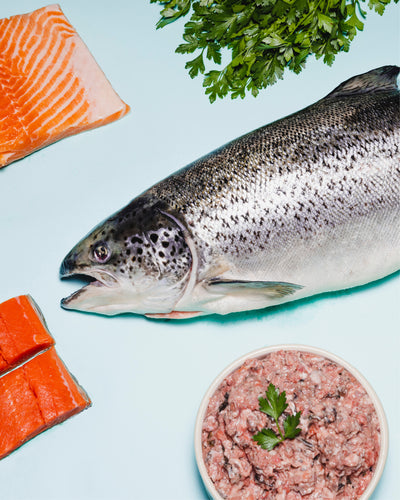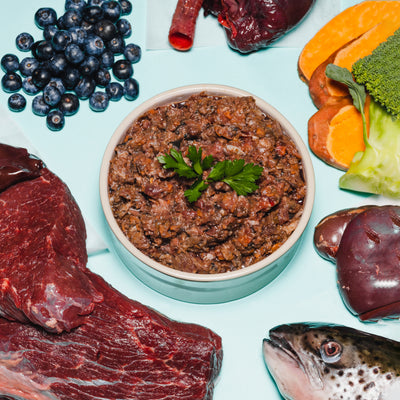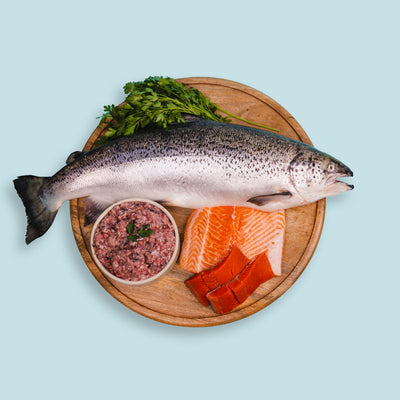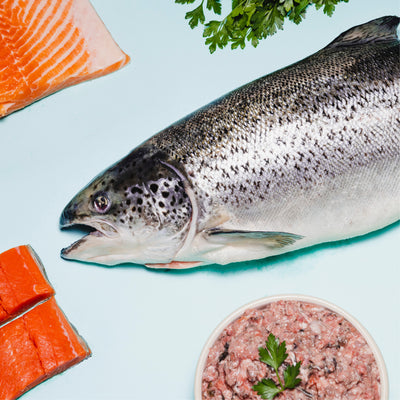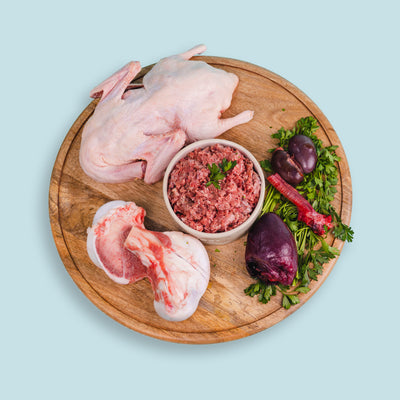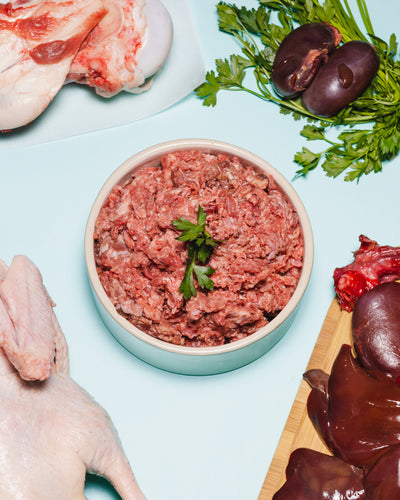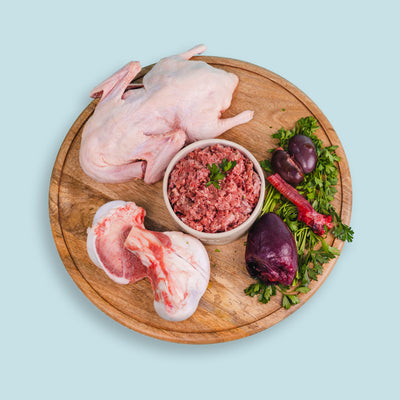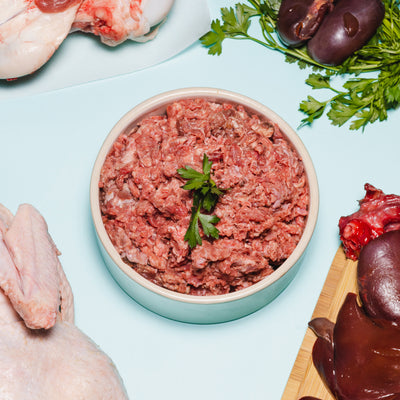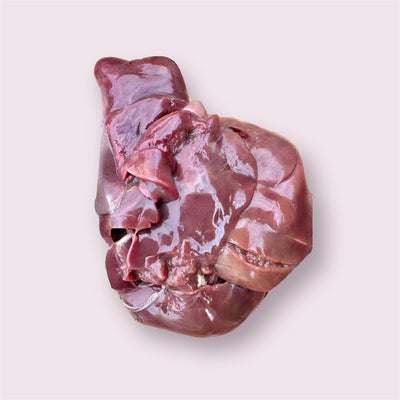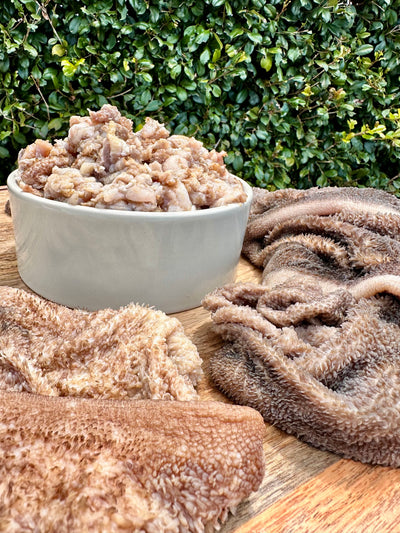In recent years, there has been a growing interest and awareness among pet owners about the importance of providing a natural and raw diet for their canine companions. This shift from conventional commercial dog food to raw feeding represents a nutritional revolution in pet care. In this blog post, we will explore the benefits of a raw diet for dogs, understand the science behind it, and discuss how pet owners can make the transition.
The Evolutionary Perspective:
To truly understand the concept of a raw diet for dogs, one must delve into the evolutionary history of our canine friends. Dogs are descendants of wolves, and their digestive systems have evolved to thrive on a diet rich in raw meat, bones, and other natural ingredients. The concept of feeding dogs raw food, often referred to as Biologically Appropriate Raw Feeding (BARF), aims to mimic the diet that their wild ancestors would have consumed.
Nutritional Benefits:
One of the primary reasons pet owners are turning to raw diets for their dogs is the numerous nutritional benefits associated with this feeding approach. Raw meat is a rich source of high-quality protein, essential amino acids, and natural fats, providing dogs with the nutrients they need for optimal health. Additionally, raw diets typically include bones, which contribute to dental health by promoting chewing and reducing plaque and tartar.
Improved Digestive Health:
Dogs are known for their strong stomach acids and short digestive tracts, which are well-suited for processing raw meat. Raw diets are believed to promote better digestion, as they eliminate many of the additives and fillers found in commercial dog food. Pet owners often report improvements in their dog's stool quality, reduced gas, and a decreased likelihood of digestive issues when transitioning to a raw diet.
Healthy Skin and Coat:
A noticeable benefit of raw feeding is the positive impact on a dog's skin and coat. The natural fats present in raw meat contribute to a lustrous coat and healthier skin. Pet owners often observe a reduction in dryness, itchiness, and dandruff, resulting in a shinier and more vibrant coat for their furry friends.
Weight Management and Muscle Development:
Maintaining an optimal body weight is crucial for a dog's overall health and longevity. Raw diets, when properly balanced, can assist in weight management. The high protein content in raw meat supports muscle development and can be particularly beneficial for active or working dogs that require additional energy and lean muscle mass.
Boosted Immune System:
A well-balanced raw diet is believed to strengthen a dog's immune system. The natural vitamins, minerals, and antioxidants present in raw food contribute to overall immune health, helping dogs better resist infections and diseases. Many pet owners report a decrease in the frequency of vet visits and a general improvement in their dog's overall well-being after transitioning to a raw diet.
Transitioning to a Raw Diet:
While the benefits of a raw diet are compelling, the transition should be approached with care. Abrupt changes in a dog's diet can lead to digestive upset. It's recommended to gradually introduce raw food, starting with small portions and increasing the amount over a week or two. Consulting with a veterinarian is essential to ensure that the new diet meets the specific nutritional needs of the individual dog, considering factors such as age, breed, and health conditions.
Addressing Concerns:
Despite the growing popularity of raw diets, some concerns and misconceptions persist. One common worry is the potential for bacterial contamination in raw meat. However, dogs have robust digestive systems that can handle bacteria that might be harmful to humans. Proper handling and sourcing of raw ingredients are crucial to mitigate these risks. Additionally, consulting with a veterinarian can address any specific concerns related to a dog's health and nutritional requirements.




